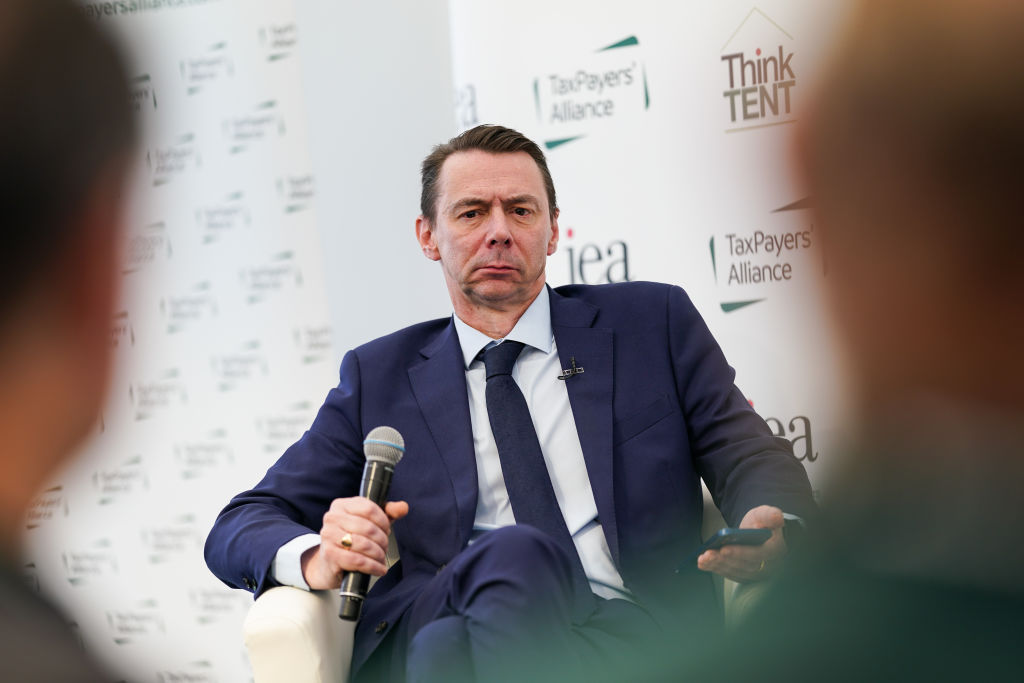It’s not every day a supporter of Scottish independence is in the running for a peerage, least of all from a Tory government. So no doubt the SNP will be congratulating Mark Littlewood, who could soon be Lord Littlewood thanks to Liz Truss’s resignation honours. The outgoing director of the Institute for Economic Affairs (IEA) has distinguished himself in the world of London think tanks, where most are as uninterested in the fate of the Union as they are uninformed about Scottish politics. Not Littlewood, who is relaxed about the prospect of the Scots breaking away.
During a February 2017 appearance on Question Time, he told the Glasgow audience: ‘I see no reason why Scotland can’t take its place as a proud independent nation.’ (In a demonstration of the BBC’s notorious Unionist bias, Littlewood was one of three pro-independence voices on the five-member panel, alongside the senior SNP politician John Swinney and nationalist luvvie Val McDermid.) At the time, the SNP was keen to welcome Littlewood to the cause. The party shared a video of his comments on its official Facebook page while the SNP’s head of digital posted the same video on Twitter.
The following month, Littlewood popped up in the National, house journal of people who think Tesco is trying to brainwash them through fruit packaging, to expand on his views. He wrote that ‘whether through independence or devolution, more power must be taken from Westminster’ and contended that a go-it-alone Scotland could continue using the pound and join the European Union without adopting the euro. These two contentions are key SNP talking points.
Elsewhere, Littlewood has said a second independence referendum is ‘wholly justified’ by the UK’s vote for Brexit. He believes the ‘administrative difficulties’ of Scotland seceding have been ‘overstated’ by Unionists and suggests the UK’s departure from the EU as the model. After all Brexit, he asserts, has ‘gone relatively smoothly’.
If it seems odd that a London-based free-marketeer would be mad keen on Scottish constitutional politics, it becomes less strange when you dig into Littlewood’s reasons for spruiking the benefits of independence. He notes:
‘We don’t know how an independent Scotland would behave. Would it continue on its present public policy path, which I guess you could say is measurably to the left of centre, certainly compared to the rest of the United Kingdom, or would it rediscover the joys of Adam Smith?’
In his assessment:
If Scotland had not just the opportunity but the responsibility of standing on its own two feet, you would almost certainly get better public policy for Scotland.
You don’t have to be a Navajo code talker to decipher the ideological underpinnings of Littlewood’s argument, but in case you’re still in doubt, in arriving at his view, Littlewood says he has applied ‘a sensible classical liberal approach’ that says ‘smaller governments’ are closer to the people and ‘tend to make wiser decisions’. That’s already more red flags than a military parade at the Kremlin but here’s one more: Littlewood says a separate Scotland would need to take ‘an urgent approach to fiscal responsibility’.
The joys of Adam Smith.
Standing on its own two feet.
A classical liberal approach.
Smaller governments.
An urgent approach to fiscal responsibility.
As Mrs Merton didn’t quite say, I wonder what it was that attracted the state-slashing libertarian Mark Littlewood to the cause of Scottish independence.
Whatever one makes of his politics, there can be no doubt that Littlewood speaks from decades of experience in public policy and influencing government. He knows how politicians think, how they react to events and crises, and how this can ultimately inform policy and legislation. Like Scottish nationalists, he sees independence as an opportunity, but rather than protesting that the opportunity they see is very different, nationalists should ask themselves which one is more like to come to fruition: their bitter utopianism or the slick-sounding remedies of low taxes, fiscal restraint and a small state.
If they are honest, they won’t like the answer, which is why they should have been a little more circumspect about the IEA director’s warm words for independence. Arise Lord Littlewood of Yes, in the county of Natland — Scottish nationalism’s first member of the House of Lords.







Comments